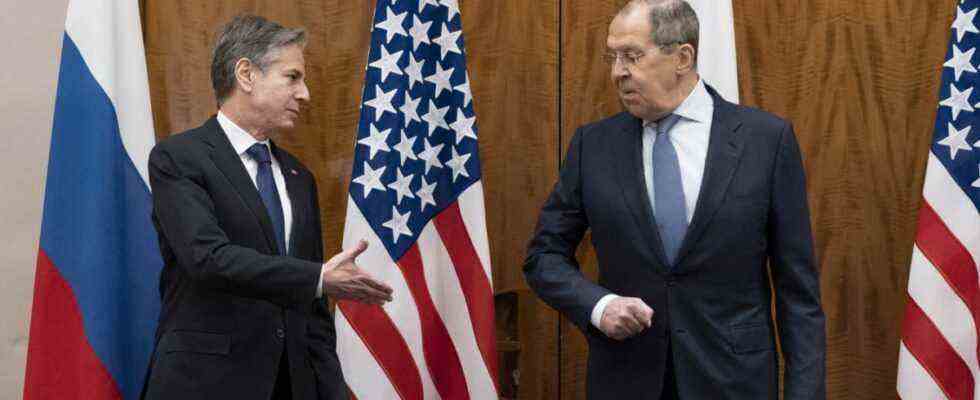It has been a long time since Sergey Lavrov or Antony Blinken spoke about the Ukraine crisis so many drops of confidence as this time. Nothing has been decided yet, nothing resolved, nothing averted. But at least the cascade of talks between Russia and the West is now lengthening. And when the Russian Foreign Minister speaks of the hope that things might calm down again, at least a short breather is allowed. Whether hundreds of tanks have to cross the border for an invasion or whether it’s enough for a Russian military jeep to park at a Ukrainian bus stop, no one has to respond publicly at the moment.
Diplomacy will continue for the time being, the dark clouds are clearing, that’s good news. Even if it is still completely unclear how the crisis will develop, several sides have already gained a lot from the recent threatening weeks, but also lost a lot.
Everyone is talking about Russia again, not China
Russian President Vladimir Putin has quickly catapulted his country to the front ranks, not on the economy, but in terms of attention span and security policy. The US and China had been the dominant, rival superpowers of late, new antipodes setting world agendas. But now: Rarely has so little been said about China, seldom so much about Russia. A success that Moscow can also enjoy at home.
Putin and the Russian military leadership should know that NATO will refuse to guarantee them that Ukraine and Georgia will never be included in the alliance. In practice, however, the menacing deployment of more than 100,000 Russian soldiers close to the Ukrainian border makes accession unlikely. While Moscow does not have the right of veto, it does have considerable influence over the separatists in the Donbass and the regions of South Ossetia and Abkhazia to drive up the price of NATO membership for Ukraine and Georgia at will. Georgia has been waiting for accession for years. The fact that it has been put off so far is not only, but also essentially, due to consideration for Russia.
Vladimir Putin apparently misjudged NATO
At the same time, Moscow seems to have miscalculated. Even if US President Joe Biden chatted somewhat liberally about the different internal thoughts of the NATO states: the message of unity has already been celebrated very emphatically on the outside. Scholz, Baerbock, Macron, Blinken, the Dutch, British and Balts – one warning followed the next. The alliance, almost sung by Donald Trump, feels important again. What’s more, the debates about security and even membership in NATO have recently been louder than before in Sweden and Finland. And the fact that in the end it would not be the Federal Network Agency that would decide on the Nord Stream 2 gas pipeline, but Russia itself, should now also be part of a worrying cost-benefit calculation in Moscow.
How it goes on? A two-way summit with Biden, which is prestigious for Russia, could reduce the sense of threat. It would be easier to sell this to the Russian people as a great success, even without maximum assurances from NATO. It has become at least a little more likely since Friday.

